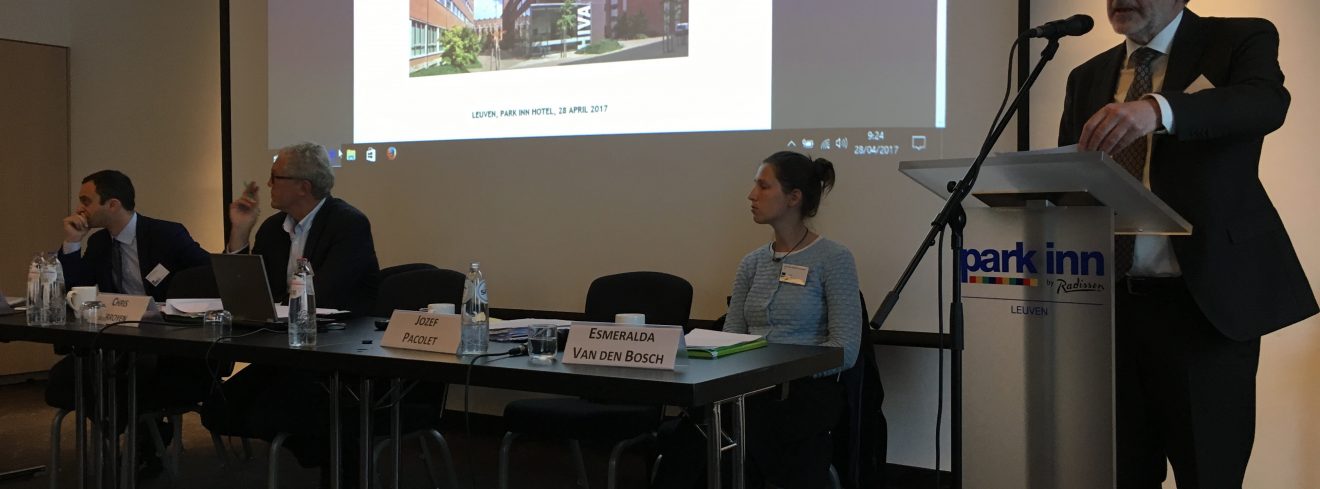To be honest, I live in the Member State that has always been a problem in terms of work mobility. Polish citizens used to cross the Iron Curtain to go west in search for work for decades. They finally caused its collapse, to be able to do it legally.
We are here, because the EC decided to do something with growing political TENSION caused by anti-European populists. Precisely, EC decided to refresh all the rules which regulate posting of workers. They did it, because many politicians believe, that TENSION is caused by workers posted from CCE countries.
I think that this is a great test of responsibility for politicians, researchers and NGOs. In this case, we must be 100% sure that those refreshed regulations make everyday life of legitimate service providers and their workers easier and at the same time they make it more difficult for those who use undeclared workforce, bogus self-employment, open fake companies or fail to pay social contributions. If we fail and make it by mistake vice versa, half a milion Europeans may lose their jobs and thousands of legitimate European companies may be executed falsely accused for "social dumping" and "unfair competition".
Thank you very much for organising this conference. Your initiative is a huge step on the road from the European policy triggered by misperceptions to fact-driven policy, as the only way to solve factual problems.
Let me tell you two stories:
Kazimierz is the best renovation specialist I know. Kazimierz is self-employed. He was in France for last two months. He got there a well payed job. It was arranged by his friend architect. He's not interested in politics. Especially European politics. She does not speak French. He's very good at legal issues. Kazimierz did not submit any notification and didn't get any A1. He has no idea that such things even exist! He does not know the difference between "minimum rates of pay" and "remuneration". He does not know what a posting is. But he's very good at his job. He knows he's European so he can move freely to other member states. I talked to him on his return. Very satisfied. He made good money. His client is delighted.
Kazimierz easily walked around all the regulations, traps and walls erected to discourage him by French and EU regulations from doing that what he did. Kazimierz doesn't have to be worry about new directive, because IT WILL NOT APPLY TO HIM.
Anna is a care giver. She looks after 90-years old lady in Germany. She's employed by polish service provider and posted according to all the rules. German client, the old ladies daughter pays for the service 2000 EUR per month twice as much as she could have payed if she just open google and find one of thousands adverbs of carevigers who prefer work without any taxes, social contributions and A1 problems. Unfortunately, 8 out ot 10 Germans choose undeclared or bogusly self-employed caregivers, because it is easy, cheap and there is no bureaucracy associated with posting and signing agreement with foreign service provider.
Lets look from the broader perspective on this case:
I. Economic context
4 Issues
-
Global competitiveness of the european market - will it fall or rise as a result of restricting posting of workers? if it falls, Europeans will became poorer and the total number of work places will fall, so somewhere unemployment will rise. Will it's more likely to be in low-wage countries or in high-wage countries? Economy says that high-wage countries will suffer more.
- Specialization of MS's economies. This is a perfect economic example of the specialization within the single market. Germany has cars. France has wine. Poland has services. Specialization means that polish services are better then French services and French wine is better than polish wine. Services are market niche for some MS. According to Damjan Kukovec from Harvard University new restrictions to posting will REPRODUCE inequalities between regions of the EU. Q: How to achieve social convergence and the real "equal pay" in EU in a situation when the reachest regions force rules to fight down competition from poorer regions?
- Mobility of services seems to be important for the western economies. Going back to wine. Imagine a French winemaker. Grape harvest must take place in a very specific time and its very labour intensive. In many cases it's impossible to hire workers from local labour. But a winemaker can hire temporary workers from foreign temporary work agencies. If everything goes well and the wine is ready, the winemaker would love to sell his product in hypermarkets in Poland, which by the way are French. To do that he needs efficient international road transport. But European Parliament is about to make intra-EU transport expensive and complicated. If it does so, the French wine in Poland will become much more expensive. So less wines will be soled. So the winemaker will get less profit and will have to dismiss some of his French employees. Q: Will restrictions to posting of workers help or harm economies of high-wage countries?
- One of the catchy phrases is "Level playing field" - tabelka
II. Political context
European politics has specialized in using nice sounding catchy phrases (social, fair, decent, responsibile, compromise). When we meet MEPs and we ask about the problem of unregistered intra-EU migrant workers they answer "no, it's not a problem any more because we have the new undeclared work platform". When we ask about posting of workers they say "it's a problem because it's social dumping". We explain it's not true, because all the data say the opposite. They answer: yes, but we have to do something, because people vote for antieuropean populists. Look on the facts:
- w UK debate on Brexit the word "posted worker was not mentioned even once
- in France the candidate with highest support is the only one who is against new restrictions to posting.
- Dutch socialists, Agnes Jongerius political party in last election lost 29 out of 38 sits in Dutch parliament, while anti-European populists gained only 5 sits.
- of course, if politicians say people "posting is responsible for the unemployment in our country" some people will answer "whatever it is, we are against". But if you do that and unemployment will grow - people will feel manipulated and will vote for populists.
Q: Are we 100% sure that Europeans expect from politicians to make a sacrifice of posting for workers for them to stop voting for populists?
But we have to keep in mind the political political context in the sending countries. The ruling party in my country is not used to follow any rules. If EU will bunish/expel hundreds thousands of polish workers whey will use it to turn people away from Europe.
Anti-vaccination Movement
Research of those very scholars there gives a clear way how to solve problems without collateral damage to legitimate service providers from CCE.








